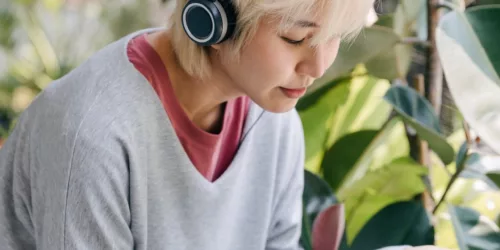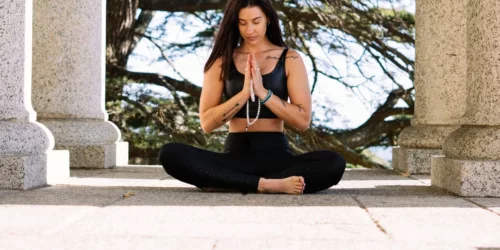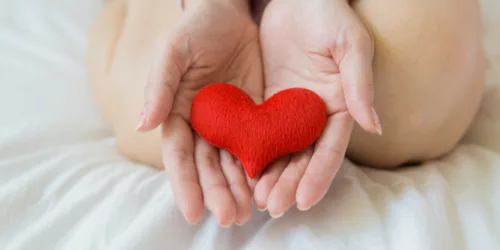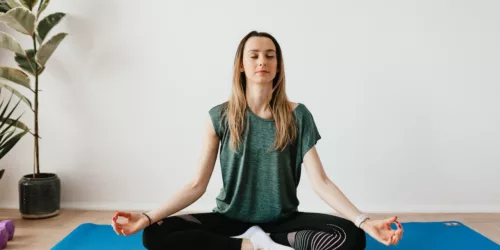Anxiety and How to Reduce It: Understanding What Triggers Anxiety
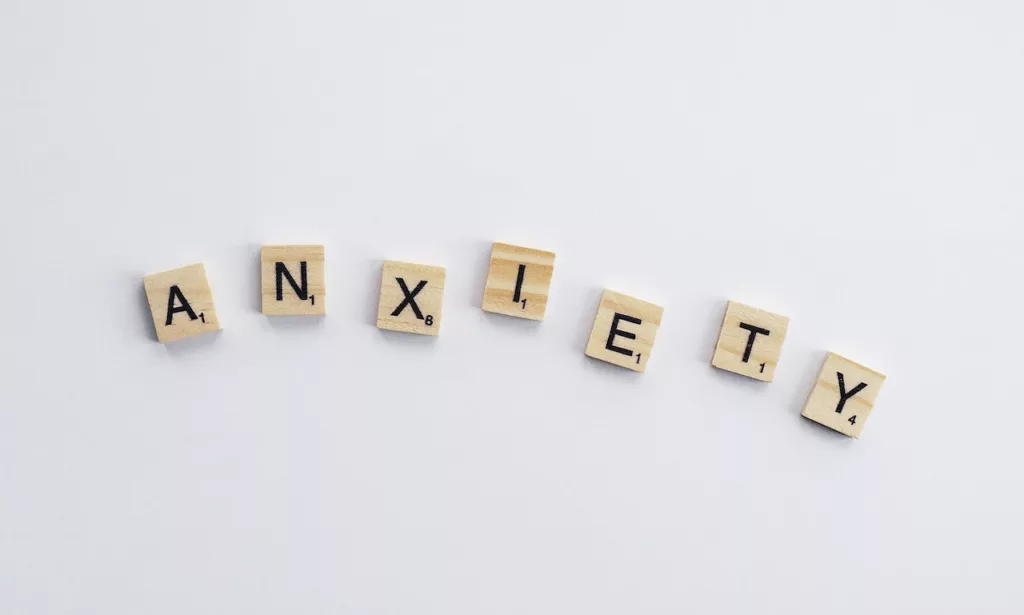
Do you feel like the world is spinning out of control and you can’t keep up? If so, you’re not alone. Anxiety affects millions of people around the world, but there are ways to ease it. Like a ship in a stormy sea, let this article be your compass as we navigate through different strategies to reduce anxiety. From identifying triggers and developing healthy habits to seeking professional help and taking a holistic approach, you don’t have to go this journey alone. Together, we’ll explore how to reduce anxiety and reclaim your peace of mind.
Key Takeaways
- Breathing and relaxation techniques, such as deep breathing exercises and meditation, can help reduce anxiety.
- Taking care of physical health through regular exercise, sufficient sleep, and a balanced diet can also contribute to anxiety reduction.
- Seeking social support, engaging in hobbies, and practicing self-care are important for managing anxiety and promoting mental well-being.
- Cognitive and emotional strategies, such as challenging negative thoughts and practicing mindfulness, can be effective in reducing anxiety levels.
Identifying Triggers
It’s important to take a step back and identify what situations make you feel anxious, so that you can take steps to minimize their impact. Acknowledging fear is the first step in identifying triggers for anxiety. It may be helpful to explore thoughts and feelings associated with these triggers, as well as recognizing any physical cues like increased heart rate or shallow breathing. Stress management techniques such as deep breathing, progressive muscle relaxation, or mindfulness can help manage your response when faced with a trigger. Seeking support from friends and family members can also be beneficial in dealing with anxiety-provoking situations.
In addition to understanding your triggers, developing healthy habits such as exercising regularly, eating nutritious meals, and getting adequate sleep are all important components of reducing anxiety levels.
Developing Healthy Habits
Creating healthy habits is key to managing your worries and fears. Incorporating meditation tips, self care strategies, lifestyle changes, emotional support, and better sleep into your life can help you reduce anxiety. Here are some ways to get started:
- Meditation Tips: Start with a few minutes of meditation each day to help you focus on the present moment and let go of anxious thoughts. Look for guided meditations online or apps that offer them.
- Self Care Strategies: Make time for activities that promote relaxation such as yoga, reading, or taking a bath. Taking breaks from work or stressors helps you reset mentally and emotionally.
- Lifestyle Changes: Consider reducing caffeine intake, quitting smoking if applicable, exercising regularly, eating foods that fuel your body rather than comfort food cravings due to anxiety.
- Emotional Support: Talk to friends or family about how you’re feeling — they may be able to provide advice from their own perspectives on reducing anxiety. If needed seek professional help such as therapy or counseling services that specialize in helping people cope with anxiety-related issues.
- Better Sleep: Establishing a consistent bedtime routine can help improve sleep quality which studies have linked decreased levels of stress and anxiety when well rested. Exercising during the day also helps relax the body before going to sleep at night allowing for more restful slumber.
It’s important to remember creating healthy habits takes time — take small steps every day towards making positive lifestyle changes that will ultimately lead towards achieving long term goals in reducing feelings of worry and fear associated with anxiety disorder symptoms .

Practicing Relaxation Techniques
Take a break from your worries and try some relaxation techniques to help ease your mind. Practicing relaxation methods like breathing exercises, yoga poses, journaling therapy, mindfulness meditation and cognitive restructuring can be effective tools to reduce feelings of anxiety.
| Breathing Exercises | Slowing down and consciously controlling one’s breath can help signal the body that all is well and there is no need to be anxious. It also has the benefit of improving oxygen flow throughout the body which helps fight off fatigue. |
| Yoga Poses | Certain poses in yoga focus on calming the nervous system by activating the parasympathetic response within the body. These poses are designed to relax muscles, increase flexibility, improve circulation and balance energy levels. |
| Journaling Therapy | Writing thoughts and feelings down can provide an outlet for emotions that have been bottled up inside for too long. It allows us to express ourselves without judgement or fear of reprisal while helping us gain clarity on our current state of mind. |
| Mindfulness Meditation | This practice allows us to observe our thoughts without getting wrapped up in them. Through repetition we start recognizing when our minds tend towards negative thought patterns and we can choose how much mental energy we give those thoughts instead of letting them control us emotionally. |
| Cognitive Restructuring | We can use this technique to reframe situations or beliefs into more positive outlooks on life by questioning what we tell ourselves about certain events or people in our lives. This type of self-reflection gives us power over our own attitudes so as not create unwarranted anxiety over things outside of our control. |
Relaxation Techniques
Relaxation techniques have been proven effective at reducing stress hormones like cortisol which causes physical symptoms such as racing heart rate, sweating palms or tightness in chest associated with anxiety attacks. Give yourself permission to take breaks throughout your day where you can focus on relaxation activities that will help alleviate any tension you may be feeling due to overwhelming emotions or stressors from work/life balance struggles.. Taking a few moments each day devoted solely to relaxing activities will allow both your body and mind time restore their equilibrium so they are better prepared for whatever comes next in life’s journey without undue anxiety holding you back from reaching your goals .
Seeking Professional Help
If you’re feeling overwhelmed by anxiety and it’s interfering with your daily life, seeking professional help can be a great way to get the support you need. Professional guidance can provide insight into the source of your anxieties and help you develop effective ways to manage them. Seeking support from a mental health practitioner, such as a psychologist or psychiatrist, may also offer relief and allow you to confront fears in a safe environment.
There are several methods that professionals use to reduce anxiety:
- Mindful meditation
- Making lifestyle changes
- Eating a healthy diet
With mindful meditation, practitioners focus on their breath as an anchor to the present moment while letting go of worries about past or future events. Lifestyle changes may include developing better sleep hygiene habits like going to bed at consistent times and limiting screen time before bedtime. Lastly, eating healthy foods like fruits and vegetables can decrease feelings of stress while providing essential vitamins for overall wellbeing.
By taking a holistic approach which combines professional therapies with self-care practices, individuals can learn how to cope with anxious thoughts and gain control over their emotions. Although challenging at first, proactive efforts towards managing anxiety will have long-term benefits that extend beyond simply reducing symptoms; they will improve quality of life and foster resilience in the face of adversity. With this knowledge in hand, one is well-equipped to take on the next step towards improving mental health—taking action!
Taking a Holistic Approach
A holistic approach to managing anxiety involves weaving together professional therapies and self-care practices like a tapestry, creating a beautiful picture of resilience. It is important to create boundaries for yourself in terms of your time, energy, and resources. This can help you better manage the stressors that cause anxiety. Additionally, self reflection on triggers and emotions can assist in identifying what makes you feel overwhelmed or anxious.
Making lifestyle changes such as exercising regularly, getting enough sleep, and eating nutritious meals can also be beneficial in reducing anxiety levels. You may find it helpful to seek emotional support from family members or friends who are understanding and supportive. Lastly, positive thinking and reframing negative thought patterns will help you regain control over your mental health.
Practicing mindfulness activities such as yoga or meditation can be useful tools for calming the mind and body when feeling overwhelmed with anxious thoughts. It is important to remember that everyone experiences anxious feelings differently; what works for one person may not work for another – focus on finding out what works best for you! Taking a holistic approach towards managing anxiety takes time but the results are worth it – it will provide sustainable ways for taking control of your mental health and promote overall well-being in the long run.
Frequently Asked Questions on How To Reduce Anxiety
How long does it take to reduce anxiety?
It depends on the individual and their circumstances. Various methods, such as meditation tips, lifestyle changes, cognitive therapy, support groups and talking therapy may all help to reduce anxiety over time. It’s important to find a combination that works best for you.
Are there any medications that can help with anxiety?
Yes, there are medications that can help with anxiety. However, it is important to be aware of potential side effects and risk factors. Additionally, exploring coping strategies, joining support groups, and utilizing online resources are also beneficial for reducing symptoms.
How can I make sure that I’m not overwhelmed by my triggers?
Take a deep breath and remember that your triggers don’t have to control you. Identify them, practice mindfulness, employ self care strategies, use positive reframing and breathing exercises to help manage anxiety. Together we can find the best way for you to reduce your anxiety.
What are some good relaxation techniques for reducing anxiety?
Try deep breathing, meditation, journaling and positive self-talk. Make lifestyle changes to help reduce your anxiety too. Consider these tips for managing anxiety and calming yourself.
How can I tell if I need professional help for my anxiety?
Studies show that up to 40% of people experience anxiety at some point in their lives. If you’re finding it hard to manage your worries and fears, consider seeking professional help. Meditation tips, breathing exercises, lifestyle changes, social support and cognitive restructuring are all helpful techniques for reducing anxiety but may not be enough. It’s important to take steps to address the underlying cause of your anxiety if you want lasting relief.
Final Thoughts On How To Reduce Anxiety
You don’t have to suffer from anxiety forever. With the right strategies and a little bit of patience, you can reduce your anxiety levels. Try out different relaxation techniques, identify your triggers, develop healthy habits, and seek professional help if needed. Taking a holistic approach that combines physical activity with mindfulness can be especially effective in managing anxiety. Why not give it a try today? You’ll be amazed by how much better you feel when you take charge of your mental health!

